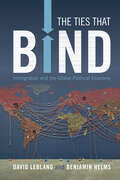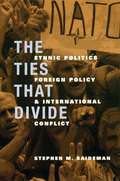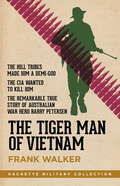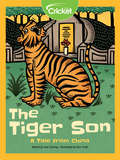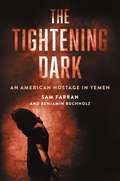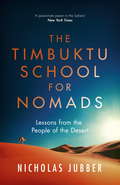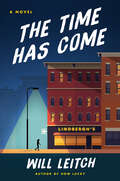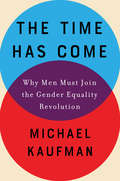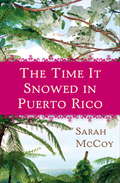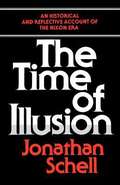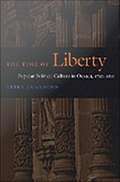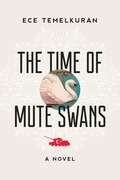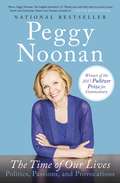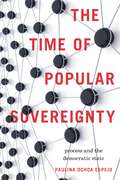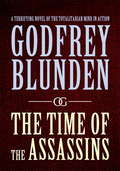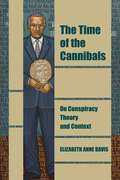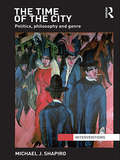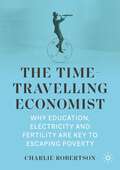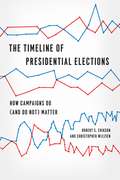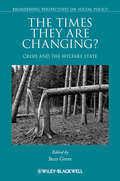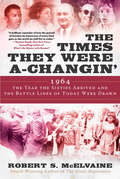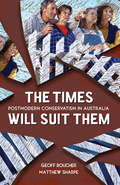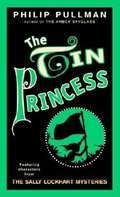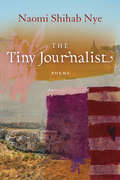- Table View
- List View
The Ties That Bind: Immigration and the Global Political Economy
by David Leblang Benjamin HelmsMigration is among the central domestic and global political issues of today. Yet the causes and consequences - and the relationship between migration and global markets – are poorly understood. Migration is both costly and risky, so why do people decide to migrate? What are the political, social, economic, and environmental factors that cause people to leave their homes and seek a better life elsewhere? Leblang and Helms argue that political factors - the ability to participate in the political life of a destination - are as important as economic and social factors. Most migrants don't cut ties with their homeland but continue to be engaged, both economically and politically. Migrants continue to serve as a conduit for information, helping drive investment to their homelands. The authors combine theory with a wealth of micro and macro evidence to demonstrate that migration isn't static, after all, but continuously fluid.
The Ties That Divide: Ethnic Politics, Foreign Policy, and International Conflict (International Relations)
by Stephen SaidemanEthnic conflicts have created crises within NATO and between NATO and Russia, produced massive flows of refugees, destabilized neighboring countries, and increased the risk of nuclear war between Pakistan and India. Interventions have cost the United States, the United Nations, and other actors billions of dollars.While scholars and policymakers have devoted considerable attention to this issue, the question of why states take sides in other countries' ethnic conflicts has largely been ignored. Most attention has been directed at debating the value of particular techniques to manage ethnic conflict, including partition, prevention, mediation, intervention, and the like. However, as the Kosovo dispute demonstrated, one of the biggest obstacles to resolving ethnic conflicts is getting the outside actors to cooperate. This book addresses this question.Saideman argues that domestic political competition compels countries to support the side of an ethnic conflict with which constituents share ethnicities. He applies this argument to the Congo Crisis, the Nigerian Civil War, and Yugoslavia's civil wars. He then applies quantitative analyses to ethnic conflicts in the 1990s. Finally, he discusses recent events in Kosovo and whether the findings of these case studies apply more broadly.
The Tiger Man of Vietnam (Hachette Military Collection)
by Frank WalkerThe Vietnamese hilltribes made him a demi-god. The CIA wanted to kill him. This is the remarkable true story of Australian war hero Barry Petersen.As he flew over South East Asia towards Vietnam, Captain Barry Petersen struggled to keep an aura of calm. Inwardly he was incredibly excited. Aged 28, highly trained, with experience in anti-communist guerilla warfare, he was about to embark on the biggest and most important mission of his life.In 1963, Australian Army Captain Barry Petersen was sent to Vietnam. It was one of the most tightly held secrets of the Vietnam War: long before combat troops set foot there and under the command of the CIA, Petersen was ordered to train and lead guerilla squads of Montagnard tribesmen against the Viet Cong in the remote Central Highlands.Petersen successfully formed a fearsome militia, named 'Tiger Men'. A canny leader, he was courageous in battle, and his bravery saw him awarded the coveted Military Cross, and worshipped by the hill tribes.But his success created enemies, not just within the Viet Cong. Like Marlon Brando's character in 'Apocolyse Now', some in the CIA saw Petersen as having gone native. His refusal, when asked, to turn his Tiger Men into assassins as part of the notorious CIA Phoenix Program only strengthened that belief. The CIA strongly resented anyone who stood in their way. Some in the US intelligence were determined Petersen had to go and he was lucky to make it out of the mountains alive. The Tiger Man of Vietnam reveals the compelling true story of little-known Australian war hero Barry Petersen.'One of those great untold stories and Walker tells it with verve and excitement and, with meticulous attention to detail' - Sydney Morning Herald'Drips with adventure and intrigue and has at its centre a personality boys of all ages will identify with' - The Age'Walker's finely researched book goes beyond the biographical account of an Australian war hero' - Sun Herald'Walker's book about Petersen, The Tiger Man Of Vietnam, is well-crafted and racily written' - Weekend Australian
The Tiger Son: A Tale from China
by Ariane SroubekIn this Chinese folk tale, an old widow’s son is killed by a tiger. After she demands justice from the magistrate, he grants it to her, but not quite in the way she expected. Will she be able to move past her grief and find a way to survive on her own?
The Tightening Dark: An American Hostage in Yemen
by Benjamin Buchholz Sam FarranThis riveting memoir follows a Lebanese-Muslim-American and thirty-year US Marine veteran who suffered a six-month ordeal at the hands of a brutal regime in Yemen—and remained loyal to his country through it all. As air strikes carpeted Yemen's capital, Sam Farran was one of only a few Americans in the war-ravaged country. He was there to conduct security assessments for a variety of international firms. Days after his arrival, he was brutally seized and taken hostage by Houthi rebels. Sam would spend the next six months suffering a horrific ordeal that would test his endurance, his loyalty and his very soul. Every day his captors asked him—as a fellow Muslim—to betray America and his Marine heritage in exchange for his freedom. Would he give in to the Houthis and return to his Middle Eastern roots? In the end--and despite daily threats to his life—Sam found the strength to resist, and came out of his ordeal with an increased sense of being, foremost, a US Marine. The Tightening Dark is an intimate, riveting and inspiring memoir of heroic strength, courage, survival and commitment to country. And a reminder that the best parts of the American dream are the dreamers—those who pledge to being American, regardless of where they are born.
The Timbuktu School for Nomads: Lessons from the People of the Desert
by Nicholas JubberThe Sahara: a dream-like, far away landscape of Lawrence of Arabia and Wilfred Thesiger, The English Patient and Star Wars, and home to nomadic communities whose ways of life stretch back millennia. Today it's a teeth-janglingly dangerous destination, where the threat of jihadists lurks just over the horizon. Following in the footsteps of 16th century traveller Leo Africanus, Nicholas Jubber went on a turbulent adventure to the forgotten places of North Africa and the legendary Timbuktu.Once the seat of African civilization and home to the richest man who ever lived, this mythic city is now scarred by terrorist occupation and is so remote its own inhabitants hail you with the greeting, 'Welcome to the middle of nowhere'. From the cattle markets of the Atlas, across the Western Sahara and up the Niger river, Nicholas joins the camps of the Tuareg, Fulani, Berbers, and other communities, to learn about their craft, their values and their place in the world.The Timbuktu School for Nomads is a unique look at a resilient city and how the nomads pit ancient ways of life against the challenges of the 21st century.
The Time Has Come: A Novel
by Will LeitchThe author of the Edgar nominated and ALEX Award-winning How Lucky (“an absorbing thriller with heart”—People), blends suspense, humor, and compassion in a new novel about seven strangers and one very intense evening at a small-town Georgia pharmacy.Lindbergh’s Pharmacy is an Athens, Georgia, institution—the type of beloved mom and pop shop that once dotted every American town but has mostly disappeared. But Lindbergh’s has recently become the object of attention of a local fourth grade teacher Tina Lamm (“Ms. Lamm to my students”). Tina is certain something very, very bad is happening behind its famous black door and she intends to do something about it.Her suspicions—and the drastic actions she plans—are the unlikely glue that will connect her to a group of six employees and customers inside the pharmacy one hot Georgia evening. They include Theo, the Lindbergh’s scion with a secret of his own; Daphne, a nurse and Army veteran struggling with her faith; Jason, a local contractor uncertain how to deal with his gifted teenage son; Karson, a young lawyer and activist wrestling with a job offer that makes him uncomfortable; David, an Athens music scene lifer whose sobriety has been sorely tested by isolation; and Dorothy, a widow just beginning to regain her bearings.The fates of these individuals—and their fateful encounter with Tina Lamm—become intertwined in a story that is by turns funny, touching, and tense. As he did in How Lucky, Will Leitch illuminates how we live today through a story of human beings struggling to do their best.
The Time Has Come: Why Men Must Join the Gender Equality Revolution
by Michael Kaufman“For too long the struggle for the rights of women and girls was seen as women’s business. Of course, it’s equally men’s business and stops being such a struggle when it’s seen that way. This reframing gives us a chance to understand violence against women as deeply toxic for us all.” —Phumzile Mlambo–Ngcuka, UN Under–Secretary–General and Executive Director of UN WomenThe Time Has Come explores how a patriarchal culture that has given power to men comes at a huge cost to women, children, and, surprisingly, to men as well. It details how very achievable changes in our workplaces, in the ways we raise boys to be men, and in the movement to end men’s violence will bring significant rewards to communities all around the world.Michael Kaufman is the cofounder of the White Ribbon Campaign—the largest international network of men working to end violence against women—and for decades has been an advisor on gender equality to the United Nations, governments, NGOs, schools, and workplaces around the world. With honest storytelling, compassion, and hard–hitting analysis, The Time Has Come is a compelling look at why men must take a stand in the fight for general equality.
The Time It Snowed in Puerto Rico: A Novel
by Sarah MccoyVerdita Ortiz-Santiago has spent 11 long years in her sleepy Puerto Rican mountain town, and she is desperate for change. For her, the choice is easy--move to the States. McCoy's work delves into the conflicting feelings people have for those they love and the difficulties of leaving one's homeland for places unknown.
The Time of Illusion
by Jonathan SchellAn analytical account of the nation's political life and key related events and presidential activities during the Nixon years, ascribing to them a logic, coherence, and meaning not discernable at the time.
The Time of Liberty: Popular Political Culture in Oaxaca, 1750-1850
by Peter GuardinoBetween 1750 and 1850 Spanish American politics underwent a dramatic cultural shift as monarchist colonies gave way to independent states based at least nominally on popular sovereignty and republican citizenship. In The Time of Liberty, Peter Guardino explores the participation of subalterns in this grand transformation. He focuses on Mexico, comparing local politics in two parts of Oaxaca: the mestizo, urban Oaxaca City and the rural villages of nearby Villa Alta, where the population was mostly indigenous. Guardino challenges traditional assumptions that poverty and isolation alienated rural peasants from the political process. He shows that peasants and other subalterns were conscious and complex actors in political and ideological struggles and that popular politics played an important role in national politics in the first half of the nineteenth century. Guardino makes extensive use of archival materials, including judicial transcripts and newspaper accounts, to illuminate the dramatic contrasts between the local politics of the city and of the countryside, describing in detail how both sets of citizens spoke and acted politically. He contends that although it was the elites who initiated the national change to republicanism, the transition took root only when engaged by subalterns. He convincingly argues that various aspects of the new political paradigms found adherents among even some of the most isolated segments of society and that any subsequent failure of electoral politics was due to an absence of pluralism rather than a lack of widespread political participation.
The Time of Mute Swans: A Novel
by Ece TemelkuranAnkara, the capital city in the heart of Turkey at the crossroads of Europe and Asia, East and West, is a hotspot in the Cold War, torn between communism and conservatism, Western freedoms and traditional ways, with an army fearful of democracy and a government that employs thugs and torture to enforce law and order. In the summer of 1980, tensions are building. Homes of the poor are being burnt down. Armed revolutionaries on college campuses battle right-wings militias in the city's neighborhoods. The lines between good and bad, right and wrong, and beautiful and ugly are blurred by shed blood. Two children, one from a family living in misery and one well-off, form an alliance amid the turmoil. Through their senses, the cityscape unfolds its wonders, its rich smells and colors, as they try to make sense of the events swirling around them. And they hatch a plan. For the first time in generations, mute swans have migrated from Russia to the Black Sea and to a park at the center of Ankara. For the generals, they are an affirmation, and their wings must be broken so they can't fly away. But if the children can save one swan, won't they have saved the freedom of all?
The Time of Our Lives: Collected Writings
by Peggy NoonanPeggy Noonan is one of the most brilliant and influential political thinkers and writers of our time. The author of five bestselling books (What I Saw at the Revolution is now a classic), her column in The Wall Street Journalis a must-read for millions of Americans. Witty, incisive and always original, Peggy Noonan is a conservative intellectual with wide reaching appeal across the political spectrum. Now, for the first time, the best of Noonan's writing will be collected in one indispensible volume. With a special, original introduction, she chronicles her career in journalism, the Reagan White House, and the political arena. Annotated and analyzed throughout, Peggy expands a lifetime of wonderful writing into an astute examination of American life.
The Time of Popular Sovereignty: Process and the Democratic State
by Paulina Ochoa EspejoDemocracy is usually conceived as based on self-rule or rule by the people, and it is this which is taken to ground the legitimacy of the democratic form of government. But who constitutes the people? Democratic political theory has a potentially fatal weakness at its core unless it can answer this question satisfactorily. In The Time of Popular Sovereignty, Paulina Ochoa Espejo examines the problems the concept of the people raises for liberal democratic theory, constitutional theory, and critical theory. She argues that to solve these problems, the people cannot be conceived as simply a collection of individuals. Rather, the people should be seen as a series of events, an ongoing process unfolding in time. She then offers a new theory of democratic peoplehood, laying the foundations for a new theory of democratic legitimacy.
The Time of the Assassins
by Godfrey BlundenA terrifying novel of the totalitarian mind in action.In the late fall of 1941 the Germans entered Kharkov, at that time capital of the Ukraine. Sixteen months later the Red Army drove them out. The Time of the Assassins concerns what happened in the city between these two historical events. A terrifying dissection of German and Russian psychology, this is the story of the city's inhabitants, man of whom were hanged by the Germans when the retreating NKVD abandoned intact their records of Party membership. Others lived on with simple survival their only goal. Then, as the tide of war turned westward from Stalingrad, the Communist underground returned surreptitiously to Kharkov - and a new fear was abroad. Already distant artilllery fire was buising the empty windows. New assassins were soon to come.The subject is one few Westerners would have been equipped to write about, but Mr Blunden was among the handful of foreign correspondents to return to Kharkov with the victorious Russians. What he saw at first hand, plus his imaginative insight into the complex and desperate forces which had been at work during the German occupation, provided the genesis of The Time of the Assassins.
The Time of the Assassins
by Godfrey BlundenA terrifying novel of the totalitarian mind in action.In the late fall of 1941 the Germans entered Kharkov, at that time capital of the Ukraine. Sixteen months later the Red Army drove them out. The Time of the Assassins concerns what happened in the city between these two historical events. A terrifying dissection of German and Russian psychology, this is the story of the city's inhabitants, man of whom were hanged by the Germans when the retreating NKVD abandoned intact their records of Party membership. Others lived on with simple survival their only goal. Then, as the tide of war turned westward from Stalingrad, the Communist underground returned surreptitiously to Kharkov - and a new fear was abroad. Already distant artilllery fire was buising the empty windows. New assassins were soon to come.The subject is one few Westerners would have been equipped to write about, but Mr Blunden was among the handful of foreign correspondents to return to Kharkov with the victorious Russians. What he saw at first hand, plus his imaginative insight into the complex and desperate forces which had been at work during the German occupation, provided the genesis of The Time of the Assassins.
The Time of the Cannibals: On Conspiracy Theory and Context (Thinking from Elsewhere)
by Elizabeth Anne DavisIn 2009, the body of a former president of the Republic of Cyprus, Tassos Papadopoulos, was stolen from his grave. The Time of the Cannibals reconsiders this history and the public discourse on it to reconsider how we think about conspiracy theory, and specifically, what it means to understand conspiracy theories “in context.” The months after Papadopoulos’s body was stolen saw intense public speculation in Cyprus, including widespread expressions of sacrilege, along with many false accusations against Cypriots and foreigners positioned as his political antagonists. Davis delves into the public discourse on conspiracy theory in Cyprus that flourished in the aftermath, tracing theories about the grave robbery to theories about the division of Cyprus some thirty-five years earlier, and both to longer histories of imperial and colonial violence. Along the way, Davis explores cross-contextual connections among Cyprus and other locales, in the form of conspiracy theories as well as political theologies regarding the dead bodies of political leaders. Through critical close readings of academic and journalistic approaches to conspiracy theory, Davis shows that conspiracy theory as an analytic object fails to sustain comparative analysis, and defies any general theory of conspiracy theory. What these approaches accomplish instead, she argues, is the perpetuation of ethnocentrism in the guise of contextualization. The Time of the Cannibals asks what better kind of contextualization this and any “case” call for, and proposes the concept of conspiracy attunement: a means of grasping the dialogic contexts in which conspiracy theories work recursively as matters of political and cultural significance in the long durée.
The Time of the City: Politics, philosophy and genre (Interventions)
by Michael J ShapiroThe Time of the City is a trans-disciplinary work with a focus on genre-city relationships as they articulate the micropolitics of urban life in diverse cities. Shifting the territorial emphasis of political studies from the mosaic of states to the global network of cities, the book draws on urban theory rather than traditional forms of official city politics. Deriving their methodological approaches from aspects of urban theory and philosophies of aesthetics, the chapters deploy concepts from philosophy, political theory, literary studies, cinema studies, poetics and aesthetic theory on diverse cities, among which are Berlin, Hong Kong, London, Los Angeles, New York, Philadelphia and Washington, DC. Investigating a wide variety of urban formations, and developing a geophilosophy appropriate to urban space, this multi genre approach to urban life provides stunning insights into the micropolitics of ethnicity, identity, security, subjectivity and sovereignty.
The Time-Travelling Economist: Why Education, Electricity and Fertility Are Key to Escaping Poverty
by Charlie RobertsonThis insightful and original book explores the key issues that countries in Africa and South Asia need to address in order to escape poverty. Challenging traditional assumptions about the world’s poorest countries, the top priorities to address are identified as adult literacy, electricity for manufacturing, and the consequence of the relationship between fertility and savings. These suggestions are placed within a historical perspective, placing discussions on modern day Africa and South Asia alongside the development of East Asia, Europe, and the Americas in previous generations and centuries. The Time-Travelling Economist aims to move conversations about development beyond the resource curse or private sector failings, with a fresh focus on the policies that governments can embark on independently and affordably that will transform their future. It will be of interest to anyone interested in the future of the world’s low income countries.
The Timeline of Presidential Elections: How Campaigns Do (and Do Not) Matter
by Robert S. Erikson Christopher WlezienWith the 2012 presidential election upon us, will voters cast their ballots for the candidates whose platform and positions best match their own? Or will the race for the next president of the United States come down largely to who runs the most effective campaign? It's a question those who study elections have been considering for years with no clear resolution. In The Timeline of Presidential Elections, Robert S. Erikson and Christopher Wlezien reveal for the first time how both factors come into play. Erikson and Wlezien have amassed data from close to two thousand national polls covering every presidential election from 1952 to 2008, allowing them to see how outcomes take shape over the course of an election year. Polls from the beginning of the year, they show, have virtually no predictive power. By mid-April, when the candidates have been identified and matched in pollsters' trial heats, preferences have come into focus-and predicted the winner in eleven of the fifteen elections. But a similar process of forming favorites takes place in the last six months, during which voters' intentions change only gradually, with particular events-including presidential debates-rarely resulting in dramatic change. Ultimately, Erikson and Wlezien show that it is through campaigns that voters are made aware of-or not made aware of-fundamental factors like candidates' policy positions that determine which ticket will get their votes. In other words, fundamentals matter, but only because of campaigns. Timely and compelling, this book will force us to rethink our assumptions about presidential elections.
The Times They Are Changing?: Crisis and the Welfare State (Broadening Perspectives in Social Policy #12)
by Bent GreveThe Times They Are Changing? Crisis and the Welfare State presents a series of readings from international policy researchers that examine the effects of the recent financial crisis on welfare states around the world. Provides comprehensive and in depth coverage of changes in welfare states as a result of the financial crisis Reveals how the financial crisis is changing our perception of the welfare states Features contributions from policy researchers and academics from around the world
The Times They Were a-Changin': 1964, the Year the Sixties Arrived and the Battle Lines of Today Were Drawn
by Robert S McElvaineAn award-winning historian on the transformative year in the sixties that continues to reverberate in our lives and politics—for readers of Heather Cox Richardson.If 1968 marked a turning point in a pivotal decade, 1964—or rather, the long 1964, from JFK&’s assassination in November 1963 to mid-1965—was the time when the sixties truly arrived. It was then that the United States began a radical shift toward a much more inclusive definition of &“American,&” with a greater degree of equality and a government actively involved in social and economic improvement.It was a radical shift accompanied by a cultural revolution. The same month Bob Dylan released his iconic ballad &“The Times They Are a-Changin&’,&” January 1964, President Lyndon Johnson announced his War on Poverty. Spurred by the civil rights movement and a generation pushing for change, the Civil Rights Act, the Voting Rights Act, and the Immigration and Nationality Act were passed during this period. This was a time of competing definitions of freedom. Freedom from racism, freedom from poverty. White youth sought freedoms they associated with black culture, captured imperfectly in the phrase &“sex, drugs, and rock &’n&’ roll.&” Along with freedom from racist oppression, black Americans sought the opportunities associated with the white middle class: &“white freedom.&” Women challenged rigid gender roles. And in response to these freedoms, the changing mores, and youth culture, the contrary impulse found political expression in such figures as Barry Goldwater and Ronald Reagan, proponents of what was presented as freedom from government interference. Meanwhile, a nonevent in the Tonkin Gulf would accelerate the nation's plunge into the Vietnam tragedy.In narrating 1964&’s moment of reckoning, when American identity began to be reimagined, McElvaine ties those past battles to their legacy today. Throughout, he captures the changing consciousness of the period through its vibrant music, film, literature, and personalities.
The Times Will Suit Them: Postmodern conservatism in Australia
by Matthew Sharpe Geoff BoucherJohn Howard said, The times will suit me,' and they did. For over a decade John Howard took advantage of international crises and local anxieties to not only stay in government, but to radically reshape Australian public life.The Times Will Suit Them digs behind the headlines to explain the success of Howard's radical new conservatism. It shows how the Howard government and its small legion of culture warriors responded to deep changes engendered by two decades of economic reform by importing moral agendas from the US. The result was a brand of deeply postmodern' conservatism which undermined much that traditional conservatives hold dear.From Hansonism to children overboard to the Intervention in the Northern Territory and beyond, The Times Will Suit Them offers a fresh and provocative analysis from two Young Turks. It is compelling reading for anyone seeking to understand the drivers in contemporary Australian politics.
The Tin Princess (Sally Lockhart, Book #4)
by Philip PullmanDays after she witnesses a mysterious explosion in 19th-century London, sixteen-year-old Becky Winter is on her way to a small country in Central Europe, as a companion to Adelaide, a Cockney commoner who'd rather play board games than be a princess. But after an assassination makes Adelaide ruler of Razkavia, she rises to the occasion and her new station, gleefully playing international politics with the help of Becky and Jim Taylor, a dashing young detective.
The Tiny Journalist (American Poets Continuum Series #170)
by Naomi Shihab Nye“A moving testament to the impact one person can have and the devastating effects of occupation.” —Washington Post Best Poetry Books of 2019 Internationally beloved poet Naomi Shihab Nye places her Palestinian American identity center stage in her latest full-length poetry collection for adults. The collection is inspired by the story of Janna Jihad Ayyad, the "Youngest Journalist in Palestine," who at age 7 began capturing videos of anti-occupation protests using her mother's smartphone. Nye draws upon her own family's roots in a West Bank village near Janna's hometown to offer empathy and insight to the young girl's reporting. Long an advocate for peaceful communication across all boundaries, Nye’s poems in The Tiny Journalist put a human face on war and the violence that divides us from each other.
